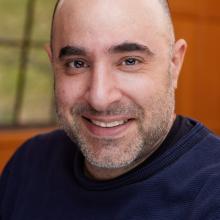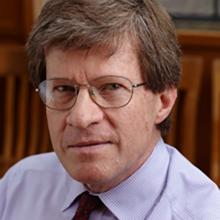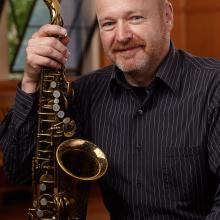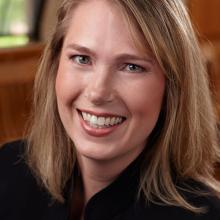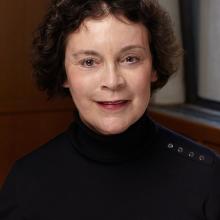Honors, appointments, research endeavors, and other recent news from School of Music faculty.
Jonathan Bernard, Music Theory
Former students of the longtime Music Theory professor organized a symposium in his honor this past June at the Music Building to celebrate his retirement after 35 years on the School of Music faculty. Organizers Bradley Osborn ('10 PhD, Music Theory), Brian Cobb ('06 DMA, Composition) and Christopher Stover ('09 PhD, Music Theory) coordinated a concert of music by composers relevant to Bernard’s research interests as well as a day of paper presentations at the Music Building that involved a number of alumni who’ve gone on to successful careers as music theorists at a range of prestigious institutions. Guest musicians at the Friday night concert included Mark Taylor ('94 BM, Jazz Studies), Stuart MacDonald ('19 MM, Jazz and Improvised Music), Steve Treseler ('15 MM, Jazz and Improvised Music), Jesse Canterbury, Eric Rynes (MM, Violin Performance), Evan Jones, Luke Fitzpatrick (DMA, Violin Performance), and Rachel Yoder. The concert featured the world premiere of La descente de l’ange, a piece by Bernard's faculty colleague, UW composer Joël-François Durand, whose music has been an ongoing research interest of Bernard. The work was performed by violinist Luke Fitzpatrick and clarinetist Rachel Yoder. Paper presentations were by Rich Pellegrin ('10 PhD, Music Theory) (University of Florida): “Salience, Triads, and Transformational Counterpoint in Robert Glasper’s Improvisation on “North Portland”; Ciro Scotto ('95 DMA, Composition) (Ohio University): “Distortion and the Aesthetics of Drone”; Lara Balicki (McGill University): “A Queer Phenomenology of Furniture Music: A Case Study of Alvin Lucier’s I am sitting in a room as Musical Furniture”; Evan Jones (Florida State University): “Form as the Forest, Motives as Trees: Stuttered Chant by David Lang”; Gabrielle Choma (University of Oregon): “Kaija Saariaho’s L’Amour de loin: Sketches, Harmonic Fields, and Text-Painting”; Jason Yust ('07 PhD, Music Theory) (Boston University): “Tetrachordal Folding Operations Applied to Morton Feldman’s For Stefan Wolpe”; Chris Stover ('09 PhD, Music Theory) (Queensland Conservatorium, Griffith University): “Proto-transformations in Cecil Taylor’s Early Work”; Brad Osborn ('10 Phd, Music Theory) (University of Kansas): “What has Reich Done with My Radiohead? Finding the tunes in Radio Rewrite”; Brett Clement (Ball State University): “The Functions of Isomelism in the Music of Frank Zappa”; Jane Clendinning (Florida State University): “Exploring Zones of Impingement: What do these composers have in common?”; David Kopp (Boston University): “Joshua Fineberg’s Viels for Solo Piano: Issues in Analysis”; and Jeffrey Perry (Louisiana State University): “Feldman’s Aural Plane (and Cage’s)”. Read a Q and A with Professor Bernard here.
Michael Brockman, Saxophone
The faculty saxophonist was recently named full-time artistic director of the Seattle Repertory Jazz Orchestra (SRJO), the professional big-band orchestra he co-founded in 1995 with colleague Clarence Acox. Since its founding, Brockman and Acox have been co-Artistic Directors of the non-profit organization with Brockman serving additionally as Executive Director, handling all the business and administrative functions. Now, after nearly three decades of splitting his time between the two roles, Brockman will focus exclusively on conceiving, developing, and implementing the artistic vision of the organization.
“For 27 years, Michael has done a phenomenal job in his combined roles as Executive and co-Artistic Director for SRJO,” says Joe Renn, President of the SRJO Board. “We have built an award-winning ensemble, a highly revered music education program and broad reaching community outreach programs. Michael has carried two very big jobs simultaneously and he will now focus entirely on his true passion -- the music.”
David Alexander Rahbee, Orchestral Activities
The UW’s head of orchestral activities recently celebrated the publication of the sixth edition of Daniels' Orchestral Music, 6th edition, which he co-authored with David Daniels and David Oertel (Rowman & Littlefield, June 2022). Considered by many to be the gold standard for all orchestral professionals—from conductors, librarians, programmers, students, administrators, and publishers, to even instructors—seeking to research and plan an orchestral program, whether for a single concert or a full season.
Rahbee reports that the sixth edition, celebrating the fiftieth anniversary of the original edition, has the largest increase in entries for a new edition of Orchestral Music: 65% more works (roughly 14,050 total) and 85% more composers (2,202 total) compared to the fifth edition. Composition details are gleaned from personal inspection of scores by orchestral conductors, making it a reliable one-stop resource for repertoire.
Giselle Wyers, Choral Conducting
Greater Seattle Choral Consortium’s annual Seattle Sings Festival contracted the Choral Conducting professor as composer-in-residence and Festival Conductor. She conducted the premiere of her composition “Join in Gathering” on May 14 in Seattle’s First Baptist Church with around 20 choirs participating.
At the end of May, Professor Wyers led 32 UW students and individuals from area community choruses in the premiere of her composition "And All Shall Be Well" for choir and string ensemble, in Carnegie Hall, New York, NY, as part of the 2022 "Legacy Festival Chorus."
Emeritus Faculty Notes
Carole Terry, Organ
The former longtime chair of the UW Organ Program is busy in fall term of 2022 as a visiting professor of Organ in the Yale Institute of Sacred Music and Yale School of Music. Dr. Terry teaches half the graduate majors in organ and leads the organ seminar and related activities. The new role is keeping Dr. Terry running—literally. "There are so many organs," she says, "and we have to travel quickly between them for lessons."
